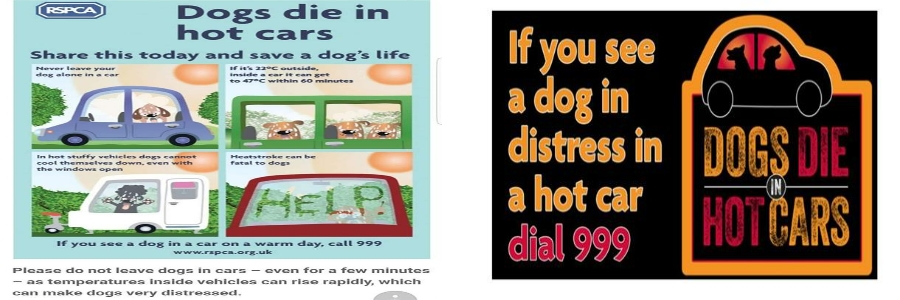
|
||
|
|
||
|
||
|
Current Heatwave - how to cope in hot weather for yourself, family and pets. |
||
|
Dear Resident,
Please find below important information on how to cope with the current heatwave for yourself, family and pets.
Most of us welcome hot weather, but when it's too hot, there are health risks. During heatwaves, more people than usual get seriously ill or die. If hot weather hits this summer, make sure it does not harm you or anyone you know. Why is a heatwave a problem? The main risks posed by a heatwave are:
A heatwave can affect anyone, but the most vulnerable people are: people who spend a lot of time outside or in hot places – those who live in a top-floor flat, the homeless or those whose jobs are outside Tips for coping with hot weather Keep your living space cool. Close windows during the day and open them at night when the temperature outside has gone down. Electric fans can help if the temperature is below 35 degrees. Check the temperature of rooms, especially where people at higher risk live and sleep. For more information visit GOV.UK: Beat the heat: staying safe in hot weather. You can also get help from the environmental health office at your local council, if you think a hot house is affecting your health or someone else's. They can inspect a rented home for hazards to health, including excess heat. https://www.gov.uk/find-your-local-council Watch out for signs of heat - related illness https://www.nhs.uk/live-well/seasonal-health/
Dogs Die In Hot Cars | RSPCA - RSPCA - rspca.org.uk Animal Welfare in Summer - Seasonal Advice | RSPCA - RSPCA - rspca.org.uk Dogs Die In Hot Cars | RSPCA - RSPCA - rspca.org.uk https://www.rspca.org.uk/adviceandwelfare/seasonal/summer/cats
Please take the following steps - If you see a police dog left unattended in a vehicle, especially if it appears distressed, contact the Metropolitan Police immediately by calling 101 or 999 in an emergency. Do not attempt to force entry into the vehicle yourself, but if the police cannot attend quickly, you may need to decide if taking action is necessary and inform the police of your intentions.
Reporting the Incident: Call 101 or 999: For non-emergencies, use 101; for emergencies, use 999, according to the Metropolitan Police.
Provide Details: When reporting, be ready to provide the date, time, location, and any details about the dog's condition and the vehicle.
Witnesses: If possible, get the names and contact information of any witnesses to the incident.
Pictures/Video: If safe to do so, take pictures or videos of the dog and the vehicle to document the situation.
Consider Breaking Entry: If the police are unable to attend quickly and the dog's life is in immediate danger, you may need to consider breaking into the vehicle as a last resort. Make sure to inform the police of your actions and reasons why.
Kind Regards, Police Staff Wayne Griffith Norbiton, Coombe Vale, New Malden Village cluster Safer Neighbourhood Team
| ||
Reply to this message | ||
|
|














